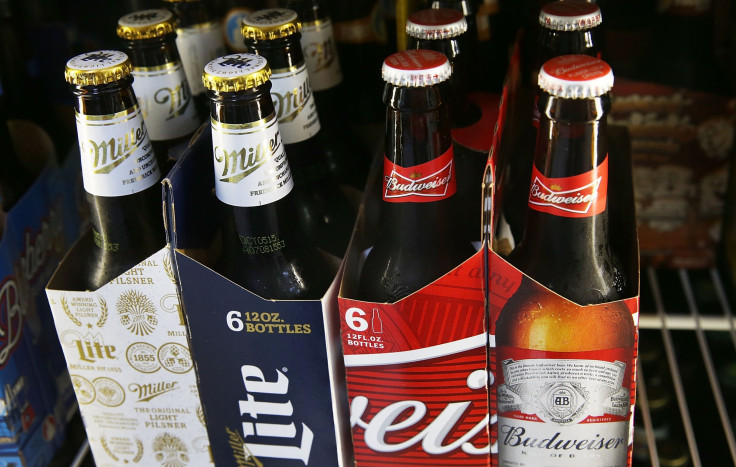AB InBev, SABMiller Merger Would Raise Antitrust Concerns In US, China, South America

The proposed merger between the world's top two beer companies, Anheuser-Busch InBev SA and SABMiller Plc, would create a massive brewopoly that profits from the sale of suds in every corner of the globe. But it's also a corporate concoction that creates serious antitrust concerns.
SABMiller rejected InBev’s $104 billion offer Wednesday for what would be the biggest takeover of a British company in history. Now, Belgium's InBev has until Oct. 14 to sweeten the deal. If the companies agree to a merger, the combined entity would produce nearly a third of the world's beer, opening up a long and complicated process to satisfy antitrust regulators in a number of countries.
“A lot of different enforcers are going to want to look at this,” Darren Tucker, an antitrust lawyer at Morgan Lewis & Bockius LLP, told the Wall Street Journal recently.
Chinese regulators, for example, could demand an end to SABMiller’s joint venture with China Resources Enterprise, which produces Snow, the world’s biggest single beer brand by sales volume. And InBev would likely face scrutiny in Argentina, Brazil and other South American countries where the company has as much as a 75 percent market share.
In Europe, there’s less of a concern because of dominant competitors like Heineken and Carlsberg and smaller regional rivals like Fuller’s. But the big issue is in the U.S. -- the world’s largest beer market (for now) -- where the companies control a combined 70 percent of the market.
The companies own almost every globally recognized brand, including InBev’s Budweiser, Beck’s, Stella Artois and Corona Light, and SABMiller’s more than 200 beer brands, including Blue Moon and Foster’s. SABMiller also has a joint venture with Molson Coors that experts say would likely need to be unwound at the behest of U.S. antitrust regulators.
In the U.S. a merger could affect the ability of craft brewers to access markets. Craft brewers rely on larger beer producers for distribution and in many states, InBev dominates the channels between beer wholesalers and retailers. A pairing of InBev and SABMiller would solidify that market power and raise antitrust concerns.
“There are well founded allegations that ABI and the larger brewers already use control over distribution to exclude competition, forcing smaller brewers out of the distribution channel,” said Diana L. Moss, president of the American Antitrust Institute. "It’s a form of exclusionary conduct. This would only be exacerbated with this merger.”
Indeed, in a 2012 interview with the Wall Street Journal, Luiz Edmund, who was head of InBev’s North American operations at the time, admitted that he expected beer wholesalers to choose between InBev’s products or other brewers. "I'm loyal to my wholesalers. Why would I not expect the same loyalty to me,'' he said.
© Copyright IBTimes 2024. All rights reserved.






















